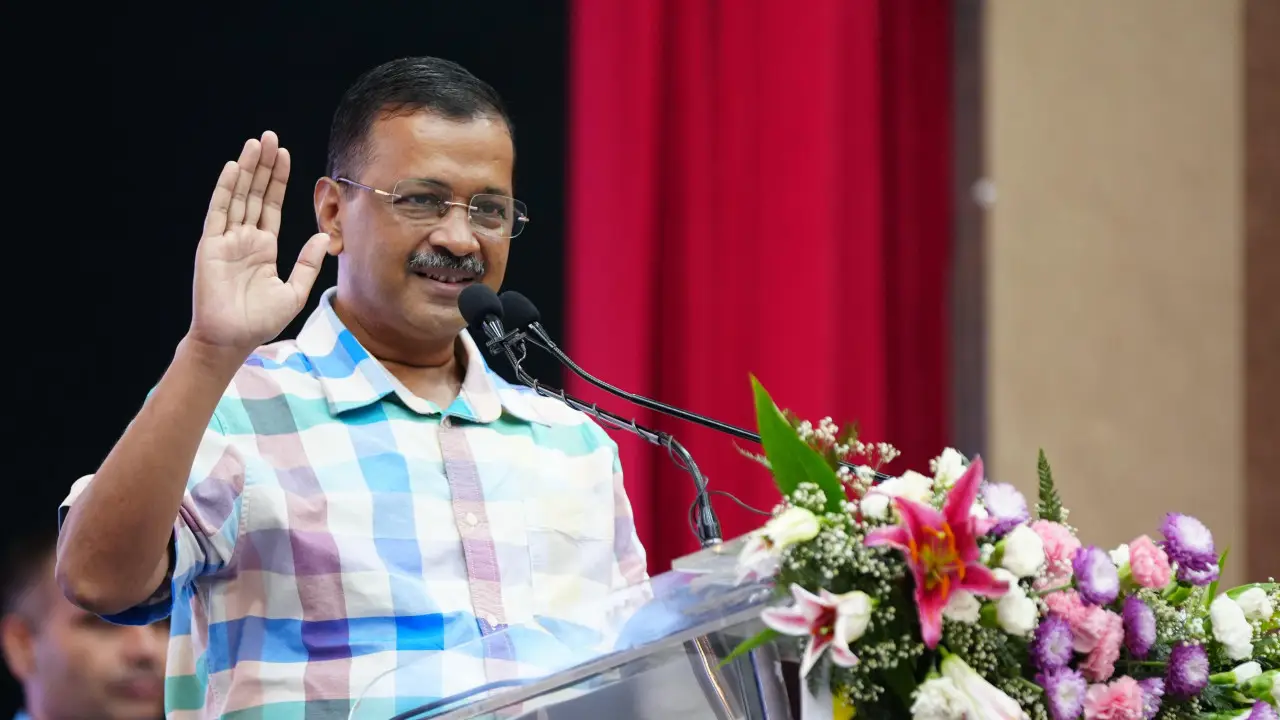
Arvind Kejriwal (Social Media)
National News: Former Delhi Chief Minister and AAP National Convenor Arvind Kejriwal has made a bold and headline-worthy statement, asserting that he deserves the Nobel Prize for Governance and Administration. Speaking at an event held at Calcutta Bhawan in Mohali, where the Punjabi edition of the book ‘Kejriwal Model’ was launched, Kejriwal emphasized that despite constant interference from the Lieutenant Governor (LG) and hurdles created by the Central Government, his administration delivered exceptional results in Delhi—achievements that, according to him, warrant international recognition.
He also took a sharp dig at the BJP, stating that despite being repeatedly obstructed, his government succeeded in delivering transformative work, particularly in the sectors of education and healthcare.
During his address, Kejriwal claimed that his government was subjected to continuous obstruction. “We were not allowed to function smoothly. The LG created hurdles at every step, yet we reformed government schools, established mohalla clinics, and improved basic services like electricity and water supply,” he said. “Running an administration under such constant pressure and political sabotage is, in itself, Nobel-worthy.” His remarks come against the backdrop of a long-standing power tussle between the elected Delhi government and the center-appointed Lieutenant governor—a conflict Kejriwal claims is designed to paralyze democratic governance in Delhi.
The event was organized to release the Punjabi edition of ‘Kejriwal Model’, a book authored by senior AAP leader Jasmine Shah. In a heartfelt speech, Kejriwal recounted his journey from being a civil servant and RTI activist to becoming a three-time Chief Minister of Delhi. He underscored that his political vision was never driven by power or electoral ambition, but by the desire to reform governance and present an alternative model for the nation. According to him, the Kejriwal Model is not propaganda but a replicable solution that can bring real change across India.
Kejriwal, in a deeply emotional tone, declared, “I never had a hunger for power or victory. I simply wanted to create a model that could restore people’s hope in public systems. There was a time when Indians believed government schools and hospitals could never improve. We shattered that belief. We proved that if the intention is honest, government institutions can outperform even the private sector.” He further added that this shift in public mindset could reshape India’s governance trajectory.
Highlighting his government’s accomplishments, Kejriwal said, “We transformed Delhi’s government schools into model institutions, revolutionized public healthcare with mohalla clinics, provided free electricity and water, and upgraded infrastructure. None of this was for show. It was to rebuild trust in governance.” He reiterated that while his administration never worked with awards in mind, if international forums recognize excellence in governance, his team’s work should stand at the forefront.
Kejriwal didn’t hold back his criticism of the Bharatiya Janata Party (BJP) and the center-appointed LG. “The BJP does not want to work for the people, and they use every possible tactic to prevent others from doing so,” he said. “The LG was weaponized to block our initiatives and derail our progress in Delhi.” He cited repeated conflicts over administrative control and accused the center of refusing to honor the mandate given to AAP by the people of Delhi, who elected his government with clear majorities thrice.
Interestingly, this marks the first time Kejriwal has projected himself as a contender for a prestigious international award. Previously, he had demanded the Bharat Ratna—India’s highest civilian honor—for his colleagues Manish Sisodia and Satyendar Jain. Now, by calling himself worthy of the Nobel Prize, Kejriwal signals a shift toward assessing his government’s achievements on global standards. While critics see this as a classic case of self-aggrandizement, supporters argue that his remarks underscore the emergence of a new governance paradigm—one rooted in transparency, efficiency, and people-centric policymaking.





Copyright © 2026 Top Indian News
